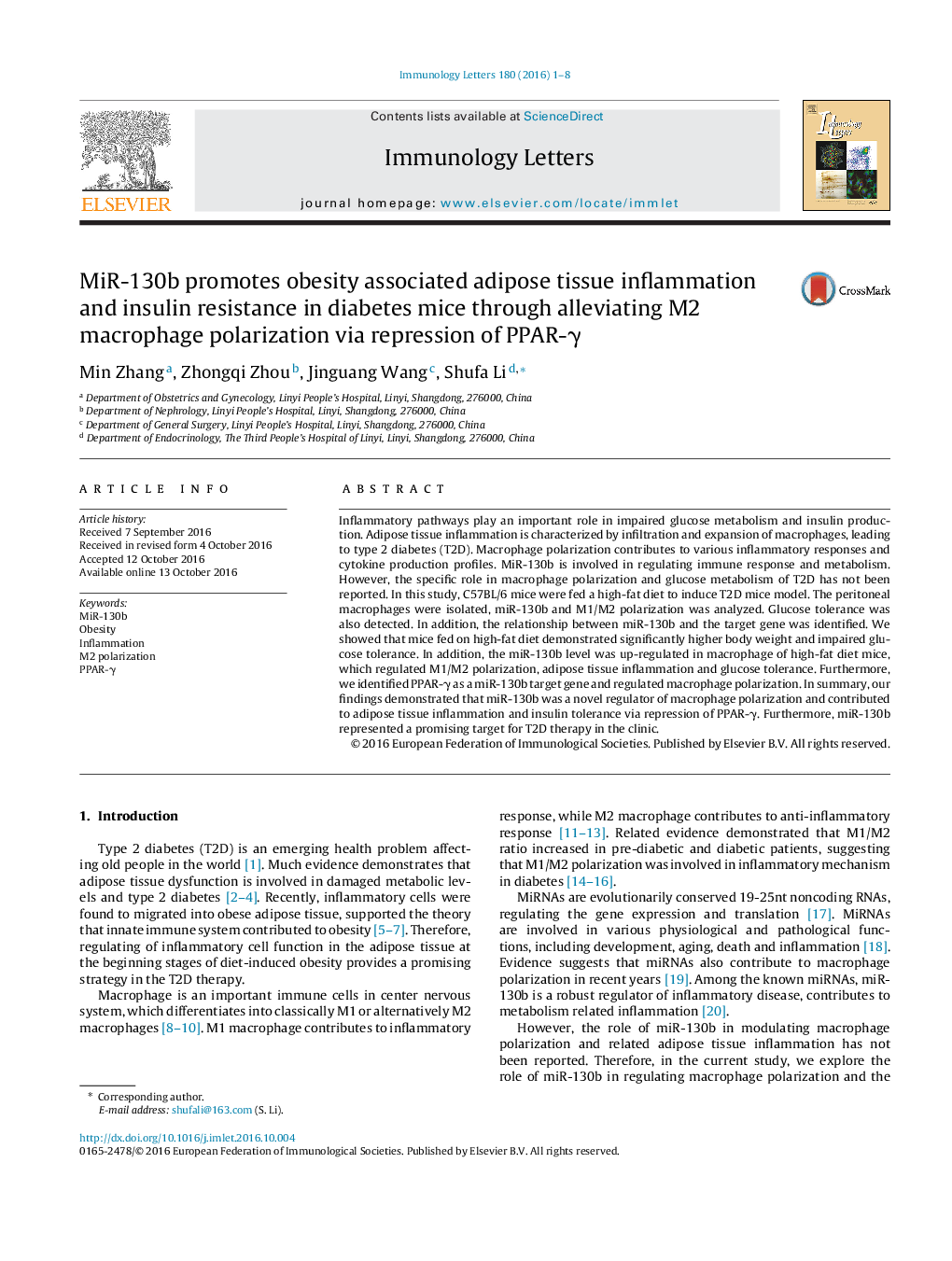| Article ID | Journal | Published Year | Pages | File Type |
|---|---|---|---|---|
| 5666750 | Immunology Letters | 2016 | 8 Pages |
â¢Mice fed on high-fat diet demonstrated significantly higher body weight and impaired glucose tolerance.â¢MiR-130b level was up-regulated in macrophage of high-fat diet mice.â¢PPAR-γ as a miR-130b target gene and regulated macrophage polarization.
Inflammatory pathways play an important role in impaired glucose metabolism and insulin production. Adipose tissue inflammation is characterized by infiltration and expansion of macrophages, leading to type 2 diabetes (T2D). Macrophage polarization contributes to various inflammatory responses and cytokine production profiles. MiR-130b is involved in regulating immune response and metabolism. However, the specific role in macrophage polarization and glucose metabolism of T2D has not been reported. In this study, C57BL/6 mice were fed a high-fat diet to induce T2D mice model. The peritoneal macrophages were isolated, miR-130b and M1/M2 polarization was analyzed. Glucose tolerance was also detected. In addition, the relationship between miR-130b and the target gene was identified. We showed that mice fed on high-fat diet demonstrated significantly higher body weight and impaired glucose tolerance. In addition, the miR-130b level was up-regulated in macrophage of high-fat diet mice, which regulated M1/M2 polarization, adipose tissue inflammation and glucose tolerance. Furthermore, we identified PPAR-γ as a miR-130b target gene and regulated macrophage polarization. In summary, our findings demonstrated that miR-130b was a novel regulator of macrophage polarization and contributed to adipose tissue inflammation and insulin tolerance via repression of PPAR-γ. Furthermore, miR-130b represented a promising target for T2D therapy in the clinic.
